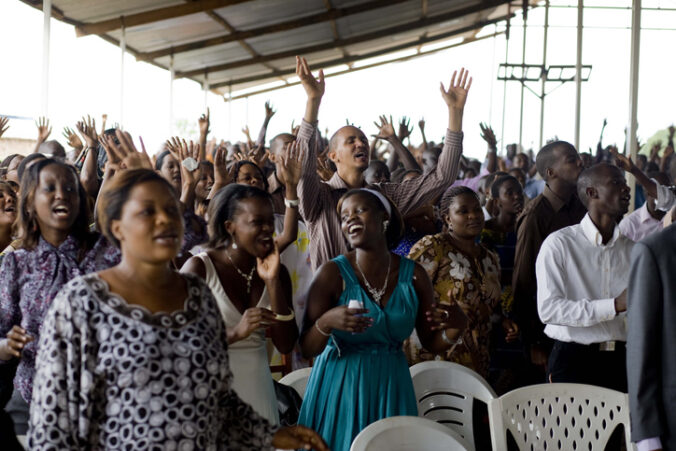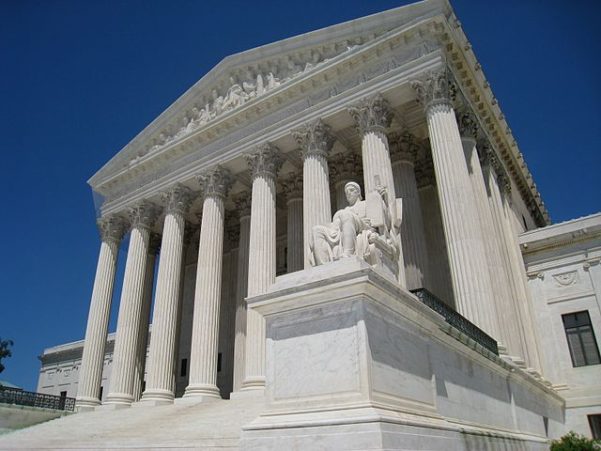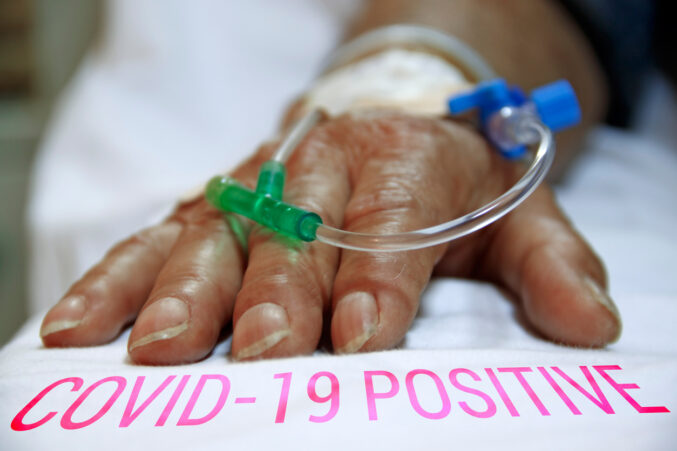Questo è l'elenco di tutti gli articoli che ho scritto per l'Iona Institute dal 2017. Si tratta di 141 pezzi, di argomento diverso. Quasi tutti sono stati ripubblicati su questo blog, a volte in versione leggermente più lunga.
2020
January
2nd January 2020
'Minister Harris
attacks a Catholic parish for being Catholic'
https://ionainstitute.ie/minister-harris-attacks-a-catholic-parish-for-being-catholic/
18th January 2020
'An abortion per day
at the Rotunda is already a horrible figure'
https://ionainstitute.ie/an-abortion-per-day-at-the-rotunda-is-already-a-horrible-figure/
22nd January 2020
'Time for Irish pharmacists to be
given proper conscience rights'
https://ionainstitute.ie/time-for-irish-pharmacists-to-be-given-proper-conscience-rights/
February
7th February 2020
'Another move to expand the grounds for abortion'
https://ionainstitute.ie/another-move-to-expand-the-grounds-for-abortion/
17th February 2020
'Pro-life vote made its presence felt in General
Election 2020'
https://ionainstitute.ie/pro-life-vote-made-its-presence-felt-in-general-election-2020/
24th February 2020
'Citizens’ Assembly moves to strip marriage of special status'
https://ionainstitute.ie/citizens-assembly-moves-to-strip-marriage-of-special-status/
26th February 2020
'Quantifying the enormous good the Church does worldwide'
https://ionainstitute.ie/quantifying-the-enormous-good-the-church-does-worldwide/
March
3rd March 2020
'The parties with the most secularist
voters'
https://ionainstitute.ie/the-parties-with-the-most-secularist-voters/
6th March 2020
'In two countries with liberal regimes, abortion rates have increased'
https://ionainstitute.ie/in-two-countries-with-liberal-regimes-abortion-rates-have-increased/
10th March 2020
'An astonishing UN
attack on religious freedom'
https://ionainstitute.ie/an-astonishing-un-attack-on-religious-freedom/
31st March 2020
'Current crisis has been exploited to make
our abortion law even more permissive'
https://ionainstitute.ie/current-crisis-has-been-exploited-to-make-our-abortion-law-even-more-permissive/
April
4th April 2020
'Northern Ireland horrendous new abortion
regime gets underway'
https://ionainstitute.ie/northern-ireland-horrendous-new-abortion-regime-gets-underway/
7th April 2020
'Remembering the heroic priests and nuns who have died in this
crisis'
https://ionainstitute.ie/remembering-the-heroic-priests-and-nuns-who-have-died-in-this-crisis/
14th April 2020
'Ethical questions in a pandemic'
https://ionainstitute.ie/ethical-questions-in-a-pandemic/
23rd April 2020
'The ethics of a lockdown'
https://ionainstitute.ie/the-ethics-of-a-lockdown/
24th April 2020
'A new poll shows how Irish religious practice is adapting to the lockdown'
https://ionainstitute.ie/how-religious-practice-in-ireland-is-adapting-to-the-lockdown/
28th April 2020
'Who should get priority treatment in a pandemic?'
https://ionainstitute.ie/who-should-get-priority-treatment-in-a-pandemic/
May
6th May 2020
'New law takes an axe to the natural ties'
https://ionainstitute.ie/new-law-takes-an-axe-to-the-natural-ties/
11th May 2020
'Religious practice reduces ‘deaths from despair’'
https://ionainstitute.ie/religious-practice-reduces-deaths-from-despair/
15th May 2020
'How religious sisters are the real founders of modern nursing'
https://ionainstitute.ie/how-religious-sisters-are-the-real-founders-of-modern-medicine/
19th May 2020
'Ireland will be one of the last countries in Europe to restore
public worship'
https://ionainstitute.ie/ireland-will-be-one-of-the-last-countries-in-europe-to-restore-public-worship/
21st May 2020
'French and German judges rule against Covid-bans on public worship'
https://ionainstitute.ie/french-and-german-judges-rule-against-covid-bans-on-public-worship/
25th May 2020
'Should those in charge get priority treatment in a pandemic?'
https://ionainstitute.ie/should-those-in-charge-get-priority-treatment-in-a-pandemic/
29th May 2020
'Getting the facts right about reversing effects of abortion pills'
https://ionainstitute.ie/getting-the-facts-right-about-reversing-effects-of-abortion-pills/
June
4th June 2020
'Safety above all things is not a Christian virtue'
https://ionainstitute.ie/safety-above-all-things-is-not-a-christian-virtue/
9th June 2020
'More light thrown on religious practice in a lockdown'
https://ionainstitute.ie/more-light-thrown-on-religious-practice-in-a-lockdown/
12th June 2020
'Number of babies with Down Syndrome being aborted goes up'
https://ionainstitute.ie/number-of-babies-with-down-syndrome-being-aborted-goes-up/
16th June 2020
'Programme for Government will ban pro-life vigils outside hospitals'
https://ionainstitute.ie/programme-for-government-will-ban-pro-life-vigils-outside-hospitals/
23rd June 2020
'Marriage in Ireland continues its decline'
https://ionainstitute.ie/marriage-in-ireland-continues-its-decline/
30th June 2020
'6666 abortions performed in Ireland last year'
https://ionainstitute.ie/6666-abortions-performed-in-ireland-last-year/
July
3rd July 2020
'For pro-choice campaigners, ignorance about abortion is bliss'
https://ionainstitute.ie/for-pro-choice-campaigners-ignorance-about-abortion-is-bliss/
10th July 2020
'The failure to protect our nursing homes'
https://ionainstitute.ie/the-failure-to-protect-our-nursing-homes/
15th July 2020
'Two wins for religious freedom at US Supreme Court'
https://ionainstitute.ie/two-wins-for-religious-freedom-at-us-supreme-court/
2019
January
9th January 2019
'Laws banning protests
outside abortion facilities are extremely rare'
https://ionainstitute.ie/no-country-in-europe-has-exclusion-zones-outside-abortion-facilities/
26th January 2019
'UCD conference gives
us a foretaste of the coming push for a ‘right-to-die’'
https://ionainstitute.ie/ucd-conference-gives-us-a-foretaste-of-the-coming-push-for-a-right-to-die/
31st January 2019
'New report on RSE
only pretends to be ‘objective’'
https://ionainstitute.ie/new-report-on-rse-only-pretends-to-be-objective/
February
12th February 2019
'Vast majority of couples who carry a terminally
ill baby to term do not regret it'
https://ionainstitute.ie/vast-majority-of-couples-who-carry-a-terminally-ill-baby-to-term-do-not-regret-it/
22nd February 2019
'Little evidence that sex education programmes
actually work
https://ionainstitute.ie/little-evidence-that-sex-education-programmes-actually-work/
March
11th March 2019
'No strong evidence
that free contraception will reduce abortion rate'
https://ionainstitute.ie/no-strong-evidence-that-free-contraception-will-reduce-abortion-rate/
26th March 2019
'Our politicians’
blind spot about the natural ties and children'
https://ionainstitute.ie/our-politicians-blind-spot-about-the-natural-ties-and-children/
April
30th April 2019
'In England the
abortion situation becomes worse'
https://ionainstitute.ie/in-england-the-abortion-situation-becomes-worse/
18th April 2019
'Ireland
must have a debate about gene-editing'
https://ionainstitute.ie/ireland-must-have-a-debate-about-gene-editing/
May
9th
May 2019
'Persecution
of Christians in some countries ‘approaching genocide’, but we remain
indifferent'
https://ionainstitute.ie/persecution-of-christians-in-some-countries-approaching-genocide-2/
15th
May 2019
'Children
suffer when parents in low-conflict marriages divorce'
https://ionainstitute.ie/children-suffer-when-parents-in-low-conflict-marriages-divorce/
21st
May 2019
'The
risk factors leading to marital breakdown'
https://ionainstitute.ie/the-risk-factors-leading-to-marital-breakdown/
31st
May 2019
'UN
report warns against all forms of surrogacy'
https://ionainstitute.ie/un-report-warns-against-all-forms-of-surrogacy/
June
16th June 2019
'Death of Dutch
teenager was euthanasia by another name'
https://ionainstitute.ie/death-of-dutch-teenager-was-euthanasia-by-another-name/
19th June 2019
'Most atheists still
believe the universe has ultimate meaning'
https://ionainstitute.ie/most-atheists-still-believe-the-universe-has-ultimate-meaning/
24th June 2019
'Unborn child counted
for nothing in judge’s decision to order an abortion'
https://ionainstitute.ie/unborn-child-counted-for-nothing-in-judges-decision-to-order-an-abortion/
July
2nd
July 2019
'Funding
of Church schools is commonplace across Europe'
https://ionainstitute.ie/funding-of-church-schools-is-commonplace-across-europe/
15th
July 2019
'Mix-up
reveals the terrible dilemma at the heart of IVF'
https://ionainstitute.ie/mix-up-reveals-the-terrible-dilemma-at-the-heart-of-ivf/
23rd
July 2019
'The
moral contradictions of altruistic egg donation and surrogacy'
https://ionainstitute.ie/the-moral-contradictions-of-altruistic-egg-donation-and-surrogacy/
30th
July 2019
'Citizens’ Assembly
could pave the way for assisted suicide'
https://ionainstitute.ie/citizens-assembly-could-pave-the-way-for-assisted-suicide/
August
9th of August 2019
'The abortion movement
and its root in eugenics'
https://ionainstitute.ie/the-abortion-movement-and-its-root-in-eugenics/
30th of August 2019
'Another terrible
assisted suicide case'
https://ionainstitute.ie/another-terrible-assisted-suicide-case/
September
10th of September 2019
'Medical Council’s
Ethics Guide now less ethical'
https://ionainstitute.ie/medical-councils-ethics-guide-now-less-ethical/
25th of September 2019
'An important voice in
favour of fathers speaks out'
https://ionainstitute.ie/an-important-voice-in-favour-of-fathers-speaks-out/
30th of September 2019
'Another atheist fails
to justify objective morality'
https://ionainstitute.ie/another-atheist-fails-to-justify-objective-morality/
October
11th of October 2019
'UCD’s big failure to
honour its founder'
https://ionainstitute.ie/ucds-big-failure-to-honour-its-founder/
18th of October 2019
'Does Leo Varadkar toast his conscience first, or the
State?'
https://ionainstitute.ie/does-leo-varadkar-toast-his-conscience-first-or-the-state/
November
7th of November 2019
'Mary McAleese’s
deeply flawed view of baptism and child autonomy'
https://ionainstitute.ie/mary-mcaleeses-deeply-flawed-view-of-baptism-and-child-autonomy/
8th of November 2019
'Do Mary McAleese and
We Are Church believe John Paul II condoned rape?'
https://ionainstitute.ie/do-mary-mcaleese-and-we-are-church-believe-john-paul-ii-condoned-rape/
13th of November 2019
'Ireland joins the
campaign to legalise abortion worldwide'
https://ionainstitute.ie/ireland-joins-the-campaign-to-legalise-abortion-worldwide/
26th of November 2019
'The HSE-backed
researcher who wants ‘ethical’ porn taught in schools'
https://ionainstitute.ie/teaching-children-that-porn-can-be-ethical-and-positive/
December
7th of December 2019
'Dr Peter Boylan needs
to correct his book on the abortion debate'
https://ionainstitute.ie/dr-peter-boylan-needs-to-correct-his-book-on-the-abortion-debate/
12th of December 2019
'Dominion: how
Christianity has shaped even its critics for the better'
https://ionainstitute.ie/dominion-how-christianity-has-shaped-even-its-critics-for-the-better/
19th of December 2019
'The inaccurate
accurate tests for foetal abnormalities'
https://ionainstitute.ie/the-inaccurate-accurate-tests-for-foetal-abnormalities/
2018
January
18th January 2018
'The use of abortion
pills by Irish women'
https://ionainstitute.ie/the-use-of-abortion-pills-by-irish-women/
24th January 2018
'Down Syndrome and
abortion; the facts'
https://ionainstitute.ie/down-syndrome-and-abortion-the-facts/
February
7th February 2018
'A conscience
provision must fully protect pro-life doctors'
https://ionainstitute.ie/a-conscience-provision-must-fully-protect-pro-life-doctors/
23rd February 2018
'Proposal for a GP-led abortion ‘service’ is
impractical as well as unjust'
https://ionainstitute.ie/proposal-for-a-gp-led-abortion-service-is-impractical-as-well-as-unjust/
28th February 2018
'Why our abortion law
would be more permissive than the British law'
https://ionainstitute.ie/why-our-abortion-law-would-be-more-permissive-than-the-british-law/
March
9th March 2018
'No Catholic with a
well-informed conscience could vote for abortion'
https://ionainstitute.ie/no-catholic-with-a-well-informed-conscience-could-vote-for-abortion/
14th March 2018
'The goal of medicine:
heal, never harm'
https://ionainstitute.ie/the-goal-of-medicine-heal-never-harm/
28th March 2018
'It is false to say
restrictive laws lead to more abortions'
https://ionainstitute.ie/it-is-false-to-say-restrictive-laws-lead-to-more-abortions/
April
18th April 2018
'The
ultra-liberal abortion regime favoured by leading members of Together for Yes'
https://ionainstitute.ie/the-ultra-liberal-abortion-regime-favoured-by-leading-members-of-together-for-yes/
May
7th
May 2018
'Together
for Yes appears to support abortion for non-fatal abnormalities'
https://ionainstitute.ie/together-for-yes-appears-to-support-abortion-for-non-fatal-abnormalities/
17th
May 2018
'Disability-based
abortions will take place within the 12 week limit'
https://ionainstitute.ie/disability-based-abortions-will-take-place-within-the-12-week-limit/
June
5th June 2018
'Proposed AHR scheme
allows gamete donation from close family members'
https://ionainstitute.ie/proposed-ahr-scheme-allows-gamete-donation-from-close-family-members/
8th June 2018
'Abortion rates
increase in the UK, particularly in Northern Ireland'
https://ionainstitute.ie/abortion-rates-increase-in-the-uk-particularly-in-northern-ireland/
13th June 2018
'Marriage breakdown in
Ireland: higher than we think'
https://ionainstitute.ie/marriage-breakdown-in-ireland-higher-than-we-think/
15th June 2018
'Morally wrong to
force GPs to refer for abortion'
https://ionainstitute.ie/morally-wrong-to-force-gps-to-refer-for-abortion/
July
11th
July 2018
'Marriage
in Ireland compared with other EU countries'
https://ionainstitute.ie/marriage-in-ireland-compared-with-other-eu-countries/
17th
July 2018
'Latest
version of planned abortion law even worse than the first one'
https://ionainstitute.ie/latest-version-of-planned-abortion-law-even-worse-than-the-first-version/
24th
July 2018
'What
really reduces teenage pregnancy; social media'
https://ionainstitute.ie/what-really-reduces-teenage-pregnancy-social-media/
27th
July 2018
'The
State must respect the conscience rights of pro-life hospitals'
https://ionainstitute.ie/the-state-must-respect-the-conscience-rights-of-pro-life-hospitals/
August
10th of August 2018
'Discovering and teaching
what makes a marriage work'
https://ionainstitute.ie/discovering-and-teaching-what-makes-a-marriage-work/
21st of August 2018
'The growing shortage
of marriageable men'
https://ionainstitute.ie/the-growing-shortage-of-marriageable-men/
September
4th of September 2018
'Leo Varadkar must not
use science to hide his pro-choice ideology'
https://ionainstitute.ie/leo-varadkar-must-not-use-science-to-hide-his-pro-choice-ideology/
7th of September 2018
'Influential academics
set out their ultra-permissive pro-choice vision'
https://ionainstitute.ie/influential-academics-set-out-their-ultra-permissive-pro-choice-vision/
12th of September 2018
'‘Mother’, ‘father’ to
be replaced by ‘parent 1’, ‘parent 2’'
https://ionainstitute.ie/mother-and-father-to-be-replaced-by-parent-1-and-parent-2/
18th of September 2018
'Marriage is the best
friend of the unborn child'
https://ionainstitute.ie/marriage-is-the-best-friend-of-the-unborn-child/
28th of September 2018
'Minister Harris, if
we voted for your abortion law, why did you change it?'
https://ionainstitute.ie/minister-harris-if-we-voted-for-your-abortion-law-why-did-you-change-it/
October
3rd of October 2018
'World Medical Association should defend its policy against euthanasia
and assisted suicide'
https://ionainstitute.ie/world-medical-association-should-defend-its-policy-against-euthanasia-and-assisted-suicide/
5th of October 2018
'Conscientious objection is again under attack'
https://ionainstitute.ie/conscientious-objection-is-again-under-attack/
10th of October 2018
'Christian bakery wins vital freedom of conscience
battle'
https://ionainstitute.ie/christian-bakery-wins-vital-freedom-of-conscience-battle/
13th of October 2018
'How ‘patriarchal’ Christianity appeals more to women
than to men'
https://ionainstitute.ie/how-patriarchal-christianity-appeals-more-to-women-than-to-men/
19th of October 2018
'How to properly protect conscience rights'
https://ionainstitute.ie/how-to-properly-protect-conscience-rights/
November
1st of November 2018
'The evidence mounts;
there are REAL differences between the sexes'
https://ionainstitute.ie/the-evidence-mounts-there-are-real-differences-between-the-sexes/
9th of November 2018
'A shameful refusal to
legislate for the respectful disposal of aborted babies'
https://ionainstitute.ie/a-shameful-refusal-to-legislate-for-the-respectful-disposal-of-aborted-babies/
22nd of November 2018
'Further evidence the
Government overestimate day-care demand'
https://ionainstitute.ie/further-evidence-the-government-overestimate-day-care-demand/
29th of November 2018
'Religious persecution
continues to rise in the world'
https://ionainstitute.ie/religious-persecution-continues-to-rise-in-the-world/
December
6th of December 2018
'The Christian
contribution to the Universal Declaration of Human Rights'
https://ionainstitute.ie/the-christian-contribution-to-the-universal-declaration-of-human-rights/
14th of December 2018
'Why the State should
tax married couples less'
https://ionainstitute.ie/why-the-state-should-tax-married-couples-less/
21st of December 2018
'Refusing to engage
with the ethical harms of surrogacy and donor-conception'
https://ionainstitute.ie/refusing-to-engage-with-the-ethical-harms-of-surrogacy-and-donor-conception/
2017
January
31st January 2017
'Time to call
maternity hospitals ‘pregnant people’ hospitals?'
https://ionainstitute.ie/time-to-call-maternity-hospitals-pregnant-people-hospitals/
February
8th February 2017
'Two rival concepts of
autonomy on display at Citizens’ Assembly'
https://ionainstitute.ie/two-rivals-concepts-of-autonomy-on-display-at-citizens-assembly/
15th February 2017
'Big majority of submissions to Citizens’ Assembly
support the right to life'
https://ionainstitute.ie/big-majority-of-submissions-to-citizens-assembly-support-the-right-to-life/
23rd February 2017
'Removing the pro-life amendment will lead
to widespread eugenics'
https://ionainstitute.ie/removing-the-pro-life-amendment-will-lead-to-widespread-eugenics/
March
3rd March 2017
'Guttmacher Institute is dead wrong; married women have far fewer
abortions'
https://ionainstitute.ie/guttmacher-institute-is-dead-wrong-married-women-have-far-fewer-abortions/
4th March 2017
'Ireland has a very
low abortion rate by European standards'
https://ionainstitute.ie/ireland-has-a-very-low-abortion-rate-by-european-standards/
14th March 2017
'Enemies of the State: Religious Freedom
and the New Repression'
https://ionainstitute.ie/enemies-of-the-state-religious-freedom-and-the-new-repression/
21st March 2017
'A bad day for religious freedom at the
European Court of Justice'
https://ionainstitute.ie/a-bad-day-for-religious-freedom-at-the-european-court-of-justice/
31st March 2017
'Commissioner’s opinion on Irish abortion
law has no real legal weight'
https://ionainstitute.ie/commissioners-opinion-on-irish-abortion-law-can-be-totally-disregarded/
April
19th April 2017
'Like
the Church, the United Nations is beset by scandals and cover-ups'
https://ionainstitute.ie/like-the-church-the-united-nations-is-beset-by-scandals-and-cover-ups/
21st April 2017
'Ireland’s
abortion rate is very low by European standards'
https://ionainstitute.ie/what-is-the-irish-abortion-rate/
May
4th May 2017
'Fintan O’Toole mocks ethos, but he has one too'
https://ionainstitute.ie/fintan-otoole-mocks-ethos-but-he-has-one-too/
18th May 2017
'Atheist Ireland’s secular State would reduce freedom of religion to
freedom of worship'
https://ionainstitute.ie/atheist-irelands-secular-state-would-reduce-freedom-of-religion-to-freedom-of-worship/
29th May 2017
'Post-the-nuns, will a pro-life or pro-choice ethic govern the St
Vincent’s hospitals?'
https://ionainstitute.ie/post-the-nuns-will-a-pro-life-or-pro-choice-ethic-govern-the-st-vincents-hospitals/
30th May 2017
'Anti-conscientious
objection article in Irish Times very misleading'
https://ionainstitute.ie/abortion-rights-activist-target-conscientious-objection-with-false-information/
June
16th June 2017
'Breaking down the latest abortion figures from England and Wales'
https://ionainstitute.ie/breaking-down-the-latest-abortion-figures-from-england-and-wales/
20th June 2017
'Official figures badly underestimate number of Down Syndrome
abortions'
https://ionainstitute.ie/official-figures-badly-underestimate-number-of-down-syndrome-abortions/
27th June 2017
'Monogamy is under attack on different fronts'
https://ionainstitute.ie/monogamy-is-under-attack-on-different-fronts/
July
5th July 2017
'Exclusivity no longer an essential element of marriage, Supreme
Court decides'
https://ionainstitute.ie/exclusivity-no-longer-an-essential-element-of-marriage-supreme-court-decides/
14th July 2017
'The Citizens’ Assembly disregards contributions from ordinary
citizens'
https://ionainstitute.ie/the-citizens-assembly-disregards-contributions-from-ordinary-citizens/
16th July 2017
'The Citizens’ Assembly report ignores conscientious objection'
https://ionainstitute.ie/the-citizens-assembly-report-ignores-conscientious-objection/
August
3rd of August 2017
'Protecting the rights of donor-conceived
children'
https://ionainstitute.ie/protecting-the-rights-of-donor-conceived-children/
10th of August 2017
'Does pro-choice animus towards Catholicism
have a limit?'
https://ionainstitute.ie/does-pro-choice-hostility-to-religion-have-a-limit/
22nd of August 2017
'The ethics of showing pictures of aborted
foetuses in public'
https://ionainstitute.ie/the-ethics-of-showing-pictures-of-aborted-foetuses-in-public/
24th of August 2017
'Leo Varadkar should have challenged Justin
Trudeau about Canada’s barbaric abortion law'
https://ionainstitute.ie/leo-varadkar-should-have-challenged-justin-trudeau-about-canadas-barbaric-abortion-law/
September
6th of September 2017
'How ‘safeguards’ aimed at limiting
assisted suicide are collapsing'
https://ionainstitute.ie/how-safeguards-aimed-at-limiting-assisted-suicide-are-collapsing/
22nd of September 2017
'Irish Government happy to promote gay
rights abroad but not religious freedom'
https://ionainstitute.ie/irish-government-happy-to-promote-gay-rights-abroad-but-not-religious-freedom/
26th of September 2017
'Katherine
Zappone’s madly contradictory views on Church and State'
https://ionainstitute.ie/katherine-zappones-madly-contradictory-views-on-church-and-state/
October
6th of October 2017
'Professor Binchy defends equal worth of
every human being before Oireachtas Committee on abortion'
https://ionainstitute.ie/professor-binchy-defends-the-inherent-and-equal-worth-of-every-human-being-before-the-oireachtas-committee-on-abortion/
18th of October 2017
'Masters of two main maternity hospitals
want law to permit abortion of disabled babies'
https://ionainstitute.ie/masters-of-two-main-maternity-hospitals-want-law-to-permit-abortion-of-disabled-babies/
26th of October 2017
'Peter Boylan is wrong about abortion rates
going down when law liberalised'
https://ionainstitute.ie/dr-peter-boylan-is-wrong-to-tell-committee-abortion-rates-go-down-when-law-liberalised/
November
9th of November 2017
'Shielding students from uncomfortable
opinions does them no favours'
https://ionainstitute.ie/shielding-students-from-uncomfortable-opinions-does-them-no-favours/
15th of November 2017
'Minister Harris should heed scandals
engulfing abortion clinics overseas'
https://ionainstitute.ie/minister-harris-should-heed-scandals-engulfing-abortion-clinics-overseas/
23rd of November 2017
'Assisted suicide comes before the
Oireachtas Justice Committee'
https://ionainstitute.ie/assisted-suicide-comes-before-the-oireachtas-justice-committee/
30th of November 2017
'Making contraception cheaper does not
reduce a country’s abortion rate'
https://ionainstitute.ie/making-contraception-cheaper-does-not-reduce-a-countrys-abortion-rate/
December
15th of December 2017
'Oireachtas Committee already considering
next attack on right to life'
https://ionainstitute.ie/oireachtas-committee-already-considering-next-attack-on-right-to-life/
6th of December 2017
'In Denmark 97pc of babies found to have
Down Syndrome were aborted last year'
https://ionainstitute.ie/in-denmark-97pc-of-babies-found-to-have-down-syndrome-were-aborted-last-year/



